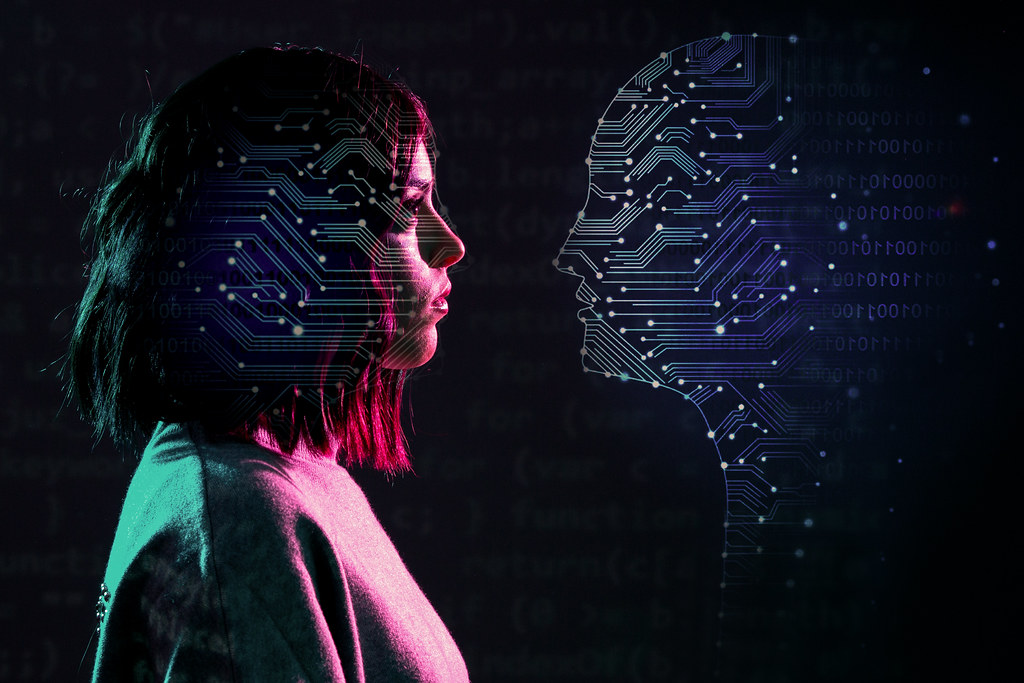You’re alive. You’re here. You’re human. You’re reading an article written by a human. But with the way things are going, that last one might not be true for much longer. In this world of fast-paced technological growth, AI has become much more prominent just over the past few years. It’s already changed how we interact with the world and take in information.
The threat of a “robot takeover” is seeming more and more plausible. Then again, AI is solving problems the world has faced for years. It’s helping the medical fields make leaps and bounds, and the inventions that utilize AI are some of the most useful things we have. But the question is, should we be excited or afraid for our future?
The truth is there are both benefits and drawbacks to automation and Artificial Intelligence. The other truth? It was already part of our lives before social media brought our attention to releases like Chat GPT and Character AI. We just didn’t think of it like artificial intelligence. So…what makes AI such a coveted and powerful tool? And if it’s been in our lives for so long, why are people just now beginning to care?
The good:
Can AI be good?! Yes, it can. It’s made revolutionary leaps and bounds in the medical field, it’s made technology and learning more accessible, and it’s made repetitive tasks in the workforce much more efficient. Plus, AI is what populates your Netflix recommendations, so there’s no way it can be all bad.
And in terms of medicine, AI is revolutionizing so many fields. It’s making transcribing easier, it’s making diagnostics faster and more accessible, and it’s making drug development more efficient. It can comb through unimaginable numbers of data sets in fractions of seconds. It can follow well-written prompts perfectly. Imagine what it could do for research and patient care with these abilities. Despite the fact that AI seems scary, it’s the only tool we have that’s capable of all that it’s capable of.
In the workforce, AI has the capabilities to make repetitive tasks much easier–freeing up time for other (perhaps more important) work. Humans are inherently lazy creatures. “Grunt Work” is viewed with deep amounts of disdain. AI might be able to solve that problem. Even with where AI is now, it has the ability to recognize patterned tasks and execute prompts. This can make those repetitive tasks a thing of the past for some workers.
Plus, some inventions that utilize AI are already integral parts of our daily life. The face ID on our phones, what populates the google search engine, and the self check-ins and check-outs at the grocery store all use AI to function as we know it. There are so many more, but the bottom line is that AI has been a part of our lives for a long, long time. It hasn’t seemed problematic yet, so why would it be problematic now?
The bad:
Remember first that AI is just a sophisticated machine. It doesn’t have ethics or morals or accountability. If AI makes a harmful decision…who’s fault is it? They aren’t built to make decisions based on morals and ethics. They’re built to solve problems based on logic.
It sounds unimportant compared to some of the other threats AI is bringing, but AI is letting creativity seep from our world in jagged cuts of generated images and generated text. Sometimes the thought of AI generated novels becoming “classics” that are taught in schools in a few decades seems like a very real possibility. Artists have already felt backlash online because it’s becoming increasingly difficult to tell when a piece of art was made by a human instead of a machine. Human creativity is one of the best things about life in this world. If machines are left to create for this world, joy would be extinguished.
And how would we handle job displacement that is prioritizing machines over human work and compensation? Millions could be put out of work once we have a foolproof system to do all the mundane, patterned tasks in the workforce. Jobs that keep people living out of poverty would likely be tossed to the wayside in the wake of a Super-intelligence that could do more of the work in less time. If we were to bring AI into the workforce, humans will seem expendable in comparison.
Another issue is the potential for an AI race across nations. If you know anything about the nuclear arms race that started in the 20th century, you know that when nations race to build something to keep power or control, it can potentially have very harmful consequences. How would we possibly handle a race to create something with power so great that might eventually start learning on its own? I’m worried we might self-destruct.
The end:
Will AI be of net good for humanity? I don’t know. Maybe I should ask Chat GPT.



